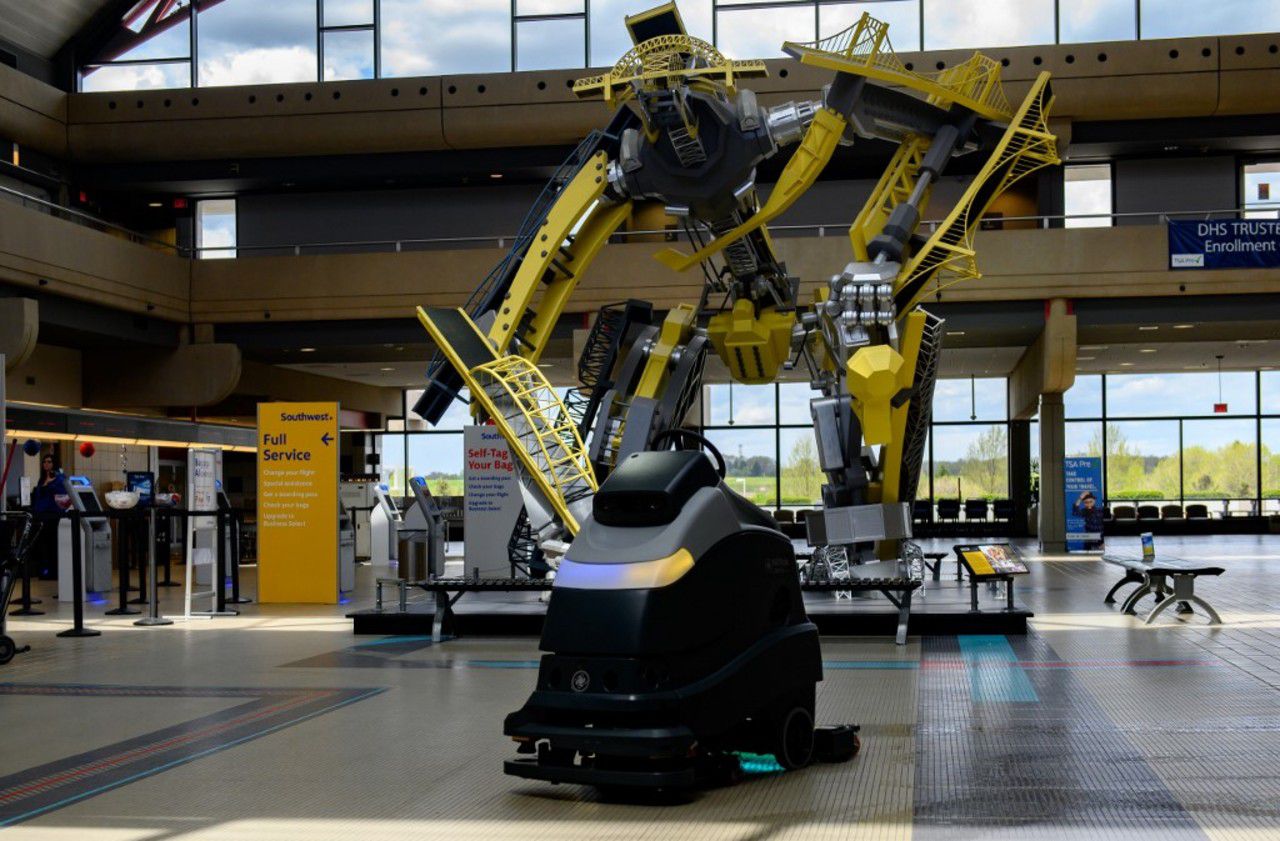A pioneer in robotics, the American company iRobot was founded 30 years ago in Boston to "make the robots we were promised in the science fiction books and films of our childhood."
And its Roomba vacuum robot, a benchmark in the young market, experienced an acceleration in sales with the Covid-19 pandemic and an increased need for cleanliness.
While the American giant unveils this Tuesday iRobot Genius Home Intelligence, a "revolutionary" software update of its models to make devices smarter and above all controllable by finger and voice, its visionary boss, Colin Angle, is is discussed at length on the place of robotics in our daily lives.
What has changed since iRobot launched three decades ago?
COLIN ANGLE. “We started out as a Research and Development company, with the world's best scientific experts developing artificial intelligence algorithms, which have since become industry standards.
We then diversified with robots that defuse bombs, others that go into oil wells… and also toy robots. It taught us how to make robots at a more affordable price for the average consumer and… we started the robot vacuum fashion.
Newsletter - Most of the news
Every morning, the news seen by Le ParisienI'm registering
Your email address is collected by Le Parisien to enable you to receive our news and commercial offers. Learn more
Our Roomba is now 18 years old ... and imagine that the algorithm that allows it to roam around your home to clean comes from a software that we had originally created for the US Department of Defense to detect mines!
In this robotic vacuum cleaner market, how can you keep your lead in the face of the emergence of credible competitors, such as the Chinese Roborock?
We are counting on our ability to innovate and raise the bar to maintain our 77% global market share. The entire home appliance industry has tried for years to compete with us, but unlike us, they are not 100% focused on this market and not investing enough. We are spending $ 150 million this year to develop new technologies.
Robots are now so complicated that it is impossible to explain to a customer the difference between our robot's navigation and that of a competitor. It all comes down to the user experience.
Chinese companies are in a logic of copying our products and releasing them at a lower price, they are doing quite well for that but we are on our side upmarket. High-end robots only represented 20% of our sales 5 years ago, when we were without a competitor, compared to 60% today. We are in a logic of anti-trivialization where the sophistication of our devices is recognized by our customers. We see ourselves as the Apple of robot vacuums.
What are the repercussions of the Covid-19 epidemic on the vacuum cleaning robot market?
Our sales were at 60% last year in specialty stores and supermarkets that were closed during lockdowns. We were therefore affected. But on the other hand, people have never spent so much time at home and realized their need for cleanliness. Those who had household help had to cancel it to stem the transmission of the virus, and managing children at home has further reduced the time that can be spent cleaning. The interest in our robots has therefore not faltered and we ultimately expect 2020 to be a much better year for us than 2019.
What role have robots played and can play in this type of health crisis?
I think people appreciate a perfect cleaning much more than before: Robots capable of maintaining a healthy environment are promised great success.
There are robotics companies right now that are mounting UV lamps on autonomous robots to sterilize rooms or warehouses without any human intervention.
Beyond comfort, the pandemic has shown that robots can also have a bigger role to play. It is accelerating the industry with start-ups that are thinking about new uses. For example, there is a need for robots to watch over the elderly or those in quarantine.
At the same time, we are witnessing a better acceptance of the robot in our societies, considered for years as an inefficient gadget.
What do robots still lack to conquer a larger audience?
When I started this business three decades ago, I thought today we would have flying cars and robots that could do it all, so no one is as frustrated as I am with the time it takes. But we are making progress: for example, traditional vacuum cleaners appear more and more obsolete, this is the first real commercial success of a robot!
We are entering a phase of “smart collaboration” as with our new iRobot Genius software where the autonomous robot becomes a partner of the consumer who has better interactive control of cleaning. The robot predicts and discusses with its owner the areas to be favored after a meal or the arrival of pollens for the allergy season.
The evolution of robot vacuum cleaners also involves software improvements every 6 months to make them effectively intelligent.
How do you see the evolution of robotics in the next ten years?
Let's be clear, we're going to make a lot of progress, but probably not as much as the public would like to see. There will be collaboration with robots through more natural voice exchanges, like connected devices.
And above all, we will have much more than robot vacuums or cleaners. Robots that mow the lawn will be more popular, for example. For my generation, the most important evolution of robotics will relate to the care and support of the elderly. They will be there to help them live better and longer.
The smart home will be judged on its ability to automatically manage all devices while maintaining energy efficiency and a healthier place to raise children. It is also a lesson that can be learned from this pandemic.

